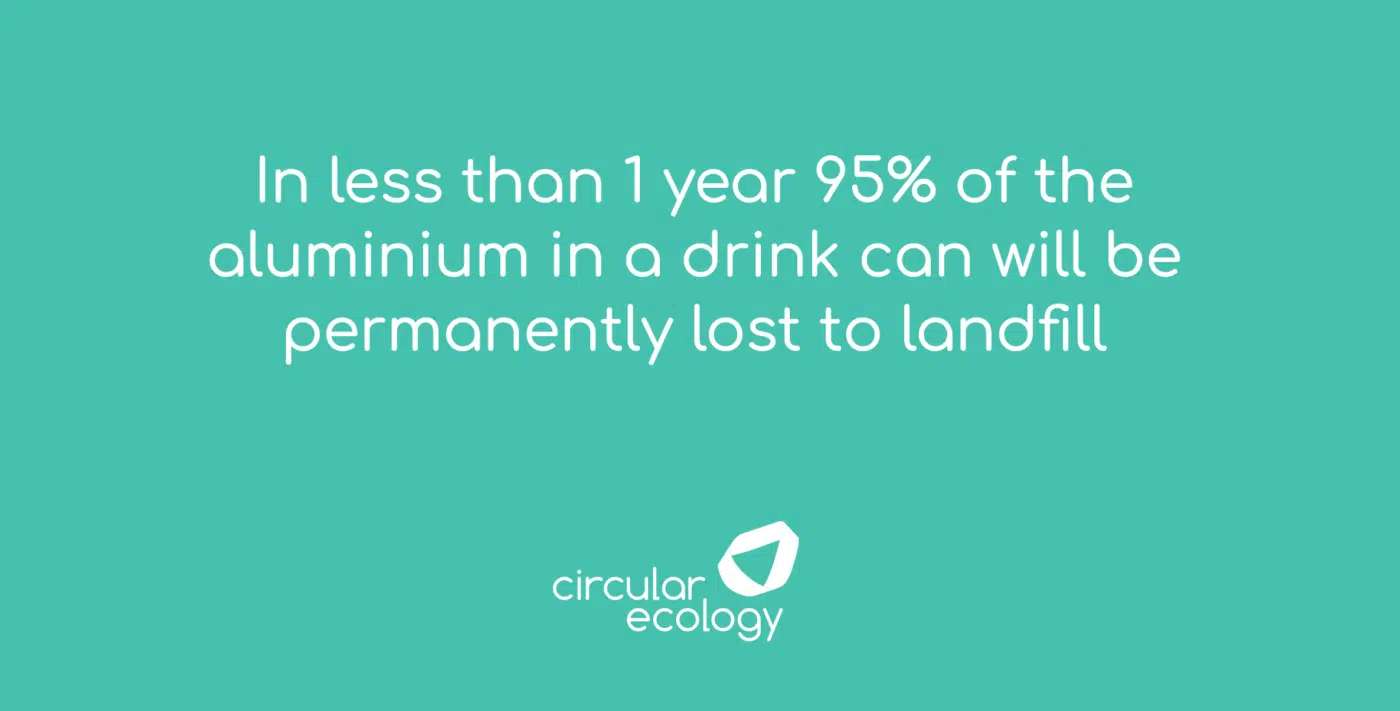Blog, Carbon Footprint, Circular Economy, Embodied Carbon, Energy, News, Sustainability, Uncategorized
Circular Economy: Recycling is Not the Benefit
It’s that day of the week again. For the last 7 days you’ve recovered some of your plastic bottles, metal cans and glass jars, ready for the recycling man to take away. In fact, each and every year we recycle or compost over 200 kg of waste per person in the EU. So clearly recycling is a large benefit, right? Wrong.
Because recycling is not a benefit.
Recycling is the normal benchmark.
Or at least it needs to be. If we want to achieve a circular economy we should not see recycling as a benefit, we should not pat ourselves on the back for recycling, we should instead see it as normal, we should expect it. You see if recycling is a benefit and we dispose of a tin can then there isn’t a strong burden of guilt. We only missed out on a small reward, the little pat on the back. Furthermore, you can still recycle the next tin can to bring back your feel good factor. So disposing of that first can has now been forgotten and you’ve been forgiven.
So if recycling is not a benefit but rather the normal benchmark, where is the benefit?
Sustainable benefits in a circular economy
Well there is no benefit. Recycling needs to be the norm. We need to sustain our finite resources and to reduce the energy consumption of our activities. We need to live in true sustainability, we need to transition to a circular economy. To do this we need best practice to become the norm and we need to stop accepting poor practice as the average. Because of this recycling is not a benefit.
But there is a burden.
That tin can you threw away was the burden. We have become all too comfortable at throwing away our resources, at landfilling our precious materials, at disposing of our goods. Each year in the EU we landfill or incinerate 280 kg of “waste” per person. We are clearly a long way off a sustainable and circular economy. This needs to change, we simply have no choice. Disposal is therefore the burden and if you start to think like that then every time you reach for the bin you will start to feel a burden of guilt. But the recycling bin is sitting just over there and is entirely guilt free.
The road to a sustainable and circular economy
The importance of this may be illustrated with an aluminium drink can. In the UK the average recycling rate for aluminium cans is 55%. The average lifetime of an aluminium can, from cradle to grave, is just 60 days. In this time the aluminium ore has been extracted from the ground, transported, processed and made into a new can. The can has also been through the distribution chain, sold in a supermarket, drank by a consumer and finally disposed of.
With the modest recycling rate and short lifecycle 95% of the original aluminium will be lost to landfill in less than a year.
Not even a hint of sustainability, sustainable development or a circular economy. This is clearly unacceptable and illustrates why each and every aluminium can needs to be recycled.
This mentality can be taken further:
- Walking to work reduces your carbon footprint? Wrong, driving yourself increases your carbon footprint burden
- Turning the tap off whilst brushing your teeth saves water? Wrong, leaving them on is a burden
- Eating vegetarian food is an environmental benefit? Wrong, eating meat is a burden
So are you currently feeling that burden of guilt? You see the facts speak for themselves. On our pathway to sustainability and the road to a circular economy we need recycling to be expected rather than an exception. After all, we don’t reward normal behaviour. Because of this recycling is not a benefit.
But in a circular economy disposal is a real burden.
Do you agree? What do you think of the circular economy? If you like this post please consider sharing it on social media using the buttons below, signing up to our Newsletter to receive future blogs by email, or following Craig on Twitter or LinkedIn.


I see your point about thinking differently, but there is no difference in one sense – the burden of not recycling a can is the same as the benefit of recycling a can (landfill emissions excluded). Like the term ‘avoided burden’ can be seen as ‘recycling benefit’ or ‘avoided guilt’ – a different way of looing at it but the quantification of this burden or benefit is the same in LCA.